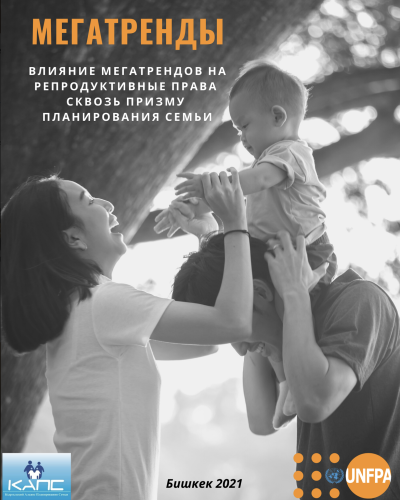Impact of Megatrends on Reproductive Rights through the Lens of Family Planning

This publication elaborates on how and why the area of family planning and reproductive health (FPRH) can become a strategic entry point to disruptively transform Kyrgyzstan and raise its human development index. The realization of reproductive rights and family planning in Kyrgyzstan are inevitably linked with the global megatrends. This review covers five megatrends with the most obvious impact on the FPRH area: (1) demography and external migration, (2) urbanization and internal migration, (3) healthy lifestyle and increasing longevity, (4) technology and economic development and (5) governance and inequality. The country's capacity and opportunities to integrate into global flows and networks may become an essential factor of the well-being of current and future generations of Kyrgyzstanis. Family planning plays a key role in a healthy and fulfilling life of women and a supportive environment for the whole family, with a serious impact on society. Life expectancy of children born into smaller families is three years longer. Realization of reproductive rights and family planning reduce maternal and child mortality rates and the number of unwanted pregnancies, leading to birth of planned and wanted children. Contraception helps achieve a smaller family size, which reduces the competition between siblings for attention and resources (for example, adequate nutrition and education) in the family. This provides a positive healthy developmental environment that reduces mortality in the short- and long-term. Key factor of reproductive health – increasing spacing between pregnancies – should be factored into family planning approaches and programmes.





